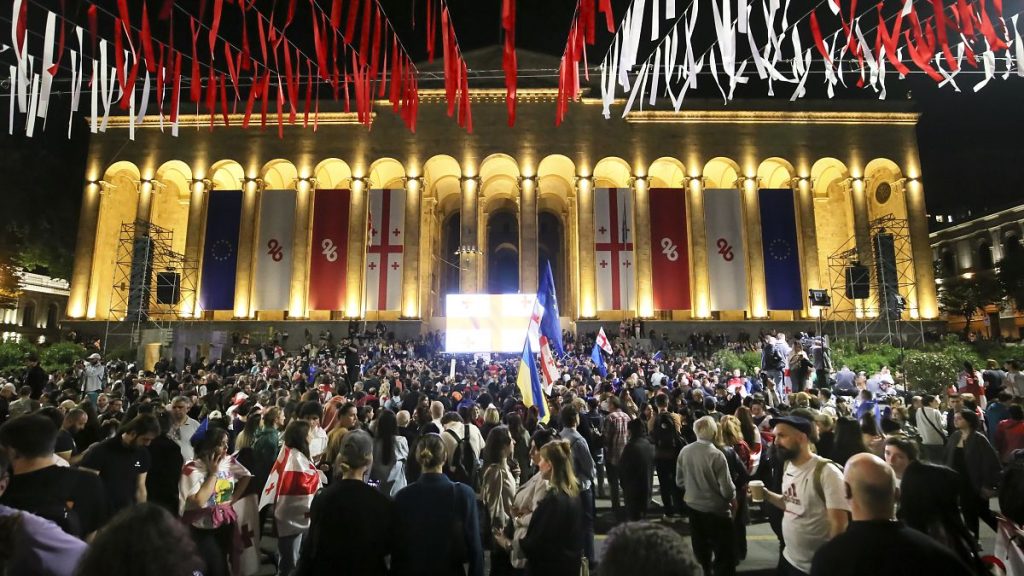Georgia’s controversial “foreign agents” bill has sparked protests and a presidential veto over concerns for media freedom and EU membership aspirations. The ruling Georgian Dream party defended the bill, which mandates that media outlets, NGOs, and nonprofits must register if over 20% of their funding comes from abroad. President Zourabichvili vetoed the bill, accusing it of endangering Georgia’s future and hindering the nation’s path towards democracy. Critics argue that the bill aims to stigmatize and restrict critical voices ahead of upcoming parliamentary elections. Critics have likened the bill to Russian measures suppressing independent media and activists, suggesting Moscow’s influence might be at play in hindering Georgia’s integration with the EU and the West.
Opposition to the bill has been significant, with renewed protests erupting as the bill advanced through parliament. Clashes with police have occurred, leading to further tensions in the country. The Georgian Civil Society Foundation plans to challenge the legislation in the constitutional court, while the EU has expressed concerns that the law negatively impacts Georgia’s path to EU membership. The US has imposed travel sanctions on Georgian officials responsible for undermining democracy, urging the government to align with democratic values and Euro-Atlantic aspirations.
The ruling party, Georgian Dream, denies accusations that the bill is an attempt to align Georgia with Russia’s sphere of influence. The party, founded by billionaire Bidzina Ivanishvili, who has ties to Russia, has faced scrutiny due to his fortune amassed in the country. Georgia’s relations with Russia have been fraught, with a brief war in 2008 leading to Moscow recognizing separatist regions of South Ossetia and Abkhazia as independent states. Most of the world, however, considers them part of Georgia. Despite recent improvements in relations, diplomatic ties between Tbilisi and Moscow remain strained due to the regions’ status.
Speaker of the Parliament Shalva Papuashvili signed the “foreign agents” bill into law on Monday, following the repeal of President Zourabichvili’s veto by the ruling party. The government defends the legislation as necessary to curb foreign influence seeking to destabilize Georgia. Prime Minister Irakli Kobakhidze dismissed criticism, calling it emotional and baseless, urging pragmatism and calm. The bill has faced opposition both domestically and internationally, with calls for its abandonment from the EU and US, who fear it compromises Georgia’s European aspirations and democratic values.
The opposition party UNM has accused Georgian Dream of aligning the country with Russia, while the ruling party denies these claims. The bill’s approval has led to tensions within the country, with reports of attacks on opposition offices and ongoing protests. Georgia’s future remains uncertain as it navigates its relationship with Russia and its aspirations for EU membership. The enactment of the “foreign agents” bill has further polarized the country, with critics viewing it as a threat to democracy and media freedom, while supporters argue it is necessary to protect Georgia from external interference.


